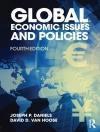Is a Universal Basic Income the answer to an increasingly precarious job landscape?
Could it bring greater financial freedom for women, tackle the issue of unpaid but essential work, cut poverty and promote greater choice? Or is it a dead-end utopian ideal that distracts from more practical and cost-effective solutions?
Contributors from musician Brian Eno, think tank Demos Helsinki, innovators such as California’s Y Combinator Research and prominent academics such as Peter Beresford OBE offer a variety of perspectives from across the globe on the politics and feasibility of basic income.
Sharing research and insights from a variety of nations – including India, Finland, Uganda, Brazil and Canada – the collection provides a comprehensive guide to the impact this innovative idea could have on work, welfare and inequality in the 21st century.
Inhaltsverzeichnis
Introduction ~ Amy Downes and Stewart Lansley;
Part I: The case for;
As artificial intelligence and robotics advance, a basic income may be the only viable solution ~ Martin Ford;
Could a universal basic income become the basis for working better in a fast-changing world? ~ Eduardo Rodriguez;
An economic shock absorber ~ Chris Oestereich;
Questioning the natural order ~ Brian Eno;
To keep music alive ~ Toby Deller;
Feminist Reflections on basic income ~ Ursula Barry;
Women, motherhood and care ~ Vanessa Olorenshaw;
My own private basic income ~ Karl Widerquist;
Coming off the fence on UBI ~ Ruth Lister;
Part II: Towards tomorrow’s society;
A new politics ~ Anthony Painter, Royal Society of Arts;
UBI for the post-industrial age ~ Roope Mokka and Katariina Rantanen, Demos Helsinki;
A down payment on a new, cooperative economy ~ Avi Lewis and Katie Mc Kenna, Leap Manifesto;
Basic income: a solution to which challenge ~ Brenton Caffin, Nesta, UK;
What we talk about when we talk about work ~ Olivia Hanks, Norwich Radical;
It’s time to stop tinkering ~ Jonathan Bartley and Caroline Lucas, UK Green Party;
How I learnt to stop worrying and love basic income ~ Jonathan Reynolds MP, Labour;
Trust trumps control ~ Uffe Elbæk, Alternativet, Denmark;
Part III: Dissenting voices;
Why basic income can never be a progressive solution ~ Francine Mestrum;
A powerful tax engine pulling a tiny cart ~ Ian Gough;
A Basic Income and the Democratisation of Social Policy ~ Peter Beresford OBE;
Why a basic income is not good enough ~ Ed Whitfield;
Unconditional basic income is a dead end ~ Anke Hassel;
Part IV: Approaches to implementation;
Basic income and social democracy ~ Philippe van Parijs;
History and the contemporary UK debate ~ Malcolm Torry, Citizen’s Income Trust;
Basic income and the democratisation of development in Europe ~ Louise Haagh;
The Indian experience: The debt trap ~ Sarath Davala;
The Indian experience: The impact on women and girls ~ Soumya Kapoor;
A Scottish pilot ~ Annie Miller;
The libertarian case for UBI ~ Matt Zwolinski;
For us all: redesigning social security for the 2020s ~ Andrew Harrop;
Making UBI work: the incremental approach ~ Stewart Lansley and Howard Reed;
Part V: Year of the trials;
An earthquake in Finland ~ Otto Lehto;
Growing a movement: the Canadian context ~ Roderick Benns and Jenna van Draanen;
The post social democratic pathway for the 21st Century; The Dutch example ~ Alexander de Roo;
The California Experiment ~ Elizabeth Rhodes, Y Combinator, USA;
‘Eight’:The Ugandan pilot ~ Steven Janssens, Belgium;
The Kenyan experiment ~ Give Directly;
Brazil: a basic income experiment as a citizen-to-citizen project ~ Bruna Augusto and Marcus Brancaglione;
Part VI: The way forward;
Building momentum ~ Amy Downes and Stewart Lansley.
Über den Autor
Stewart Lansley is a visiting fellow in the School of Policy Studies, the University of Bristol, a Council member of the Progressive Economy Forum and a Research Associate at the Compass think-tank. He is a fellow of the Academy of Social Sciences and has written widely on poverty, wealth and inequality. His recent books include A Sharing Economy (2016), Breadline Britain, The Rise of Mass Poverty (with Joanna Mack, 2015) and The Cost of Inequality (2011).












